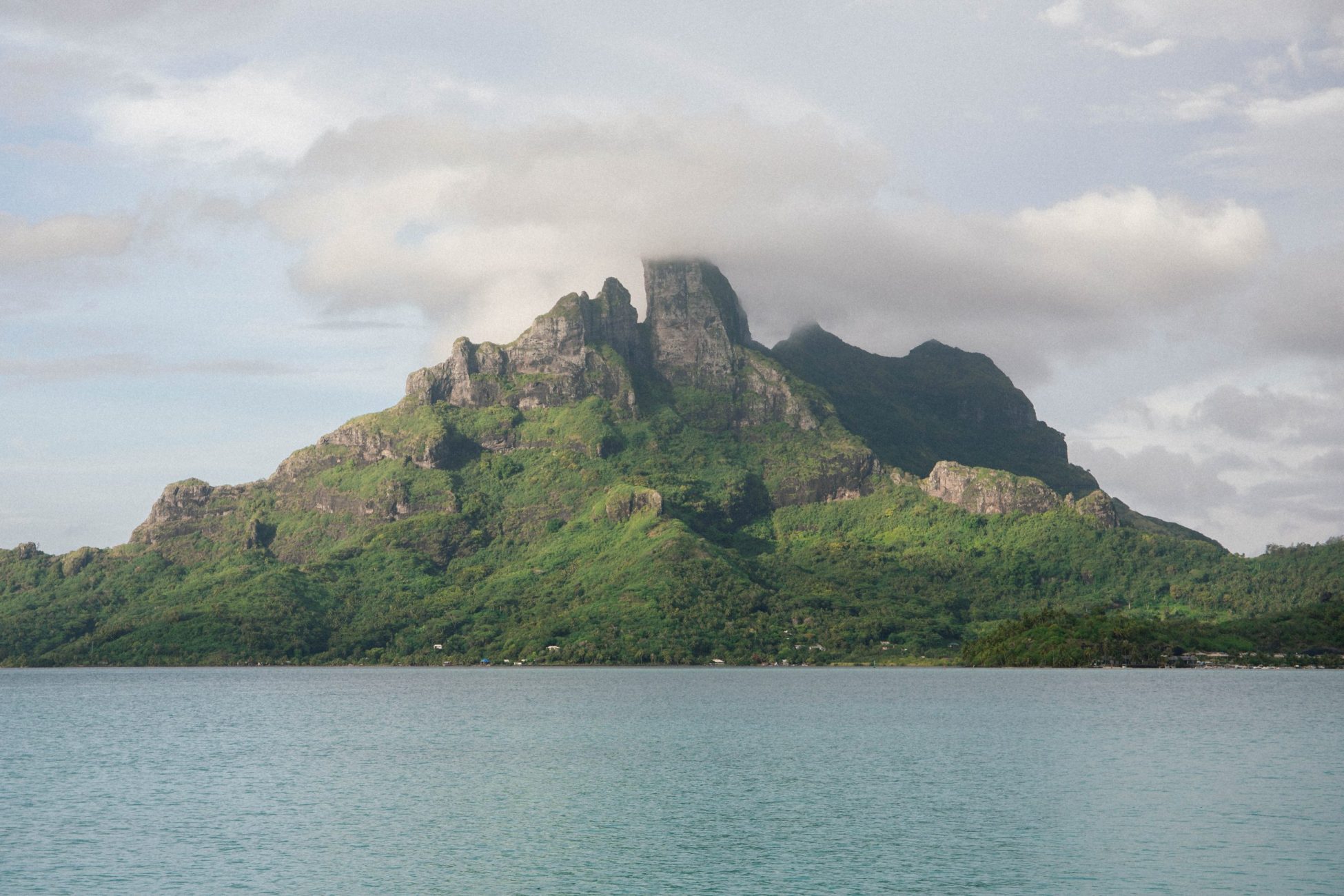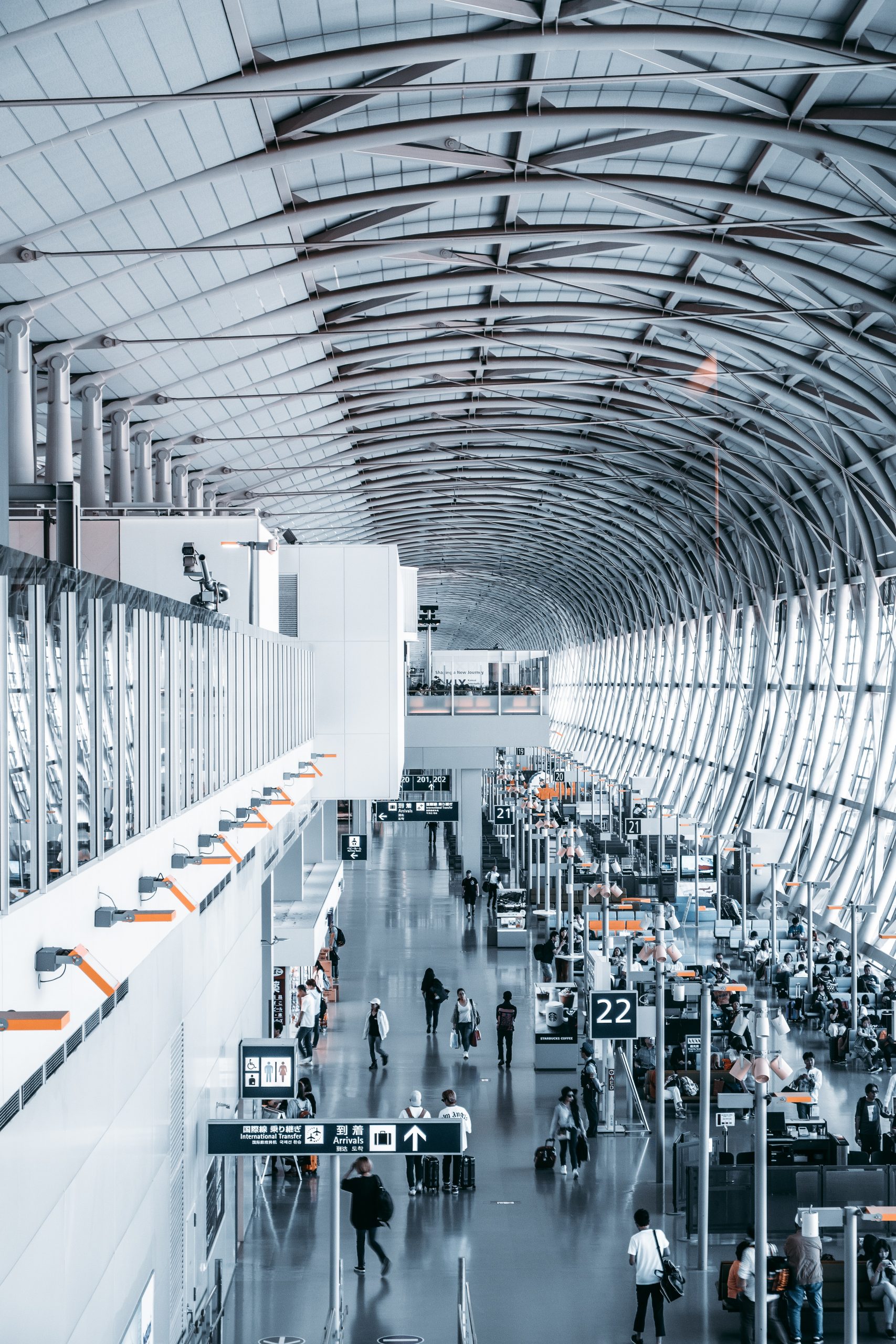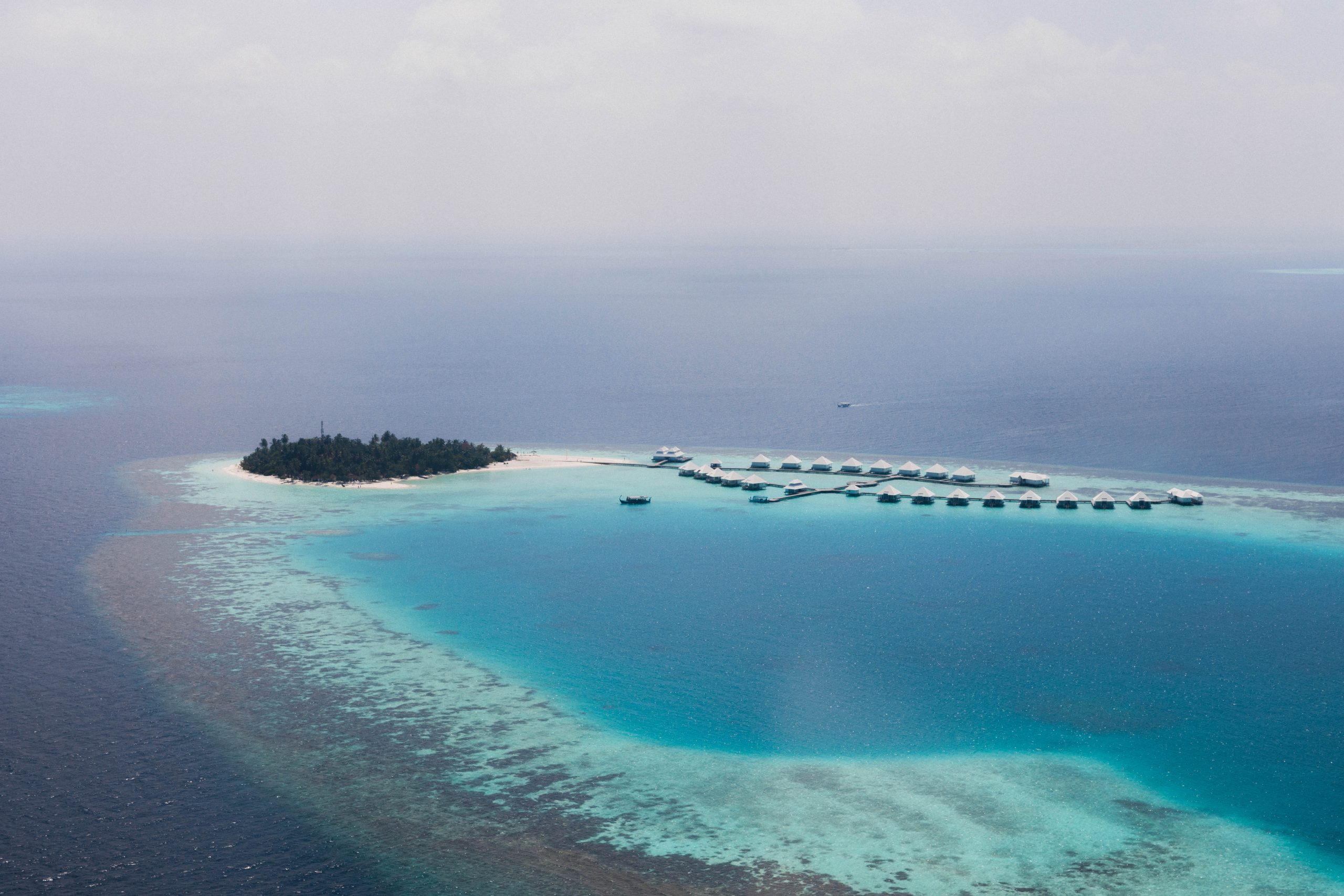Updated January 2021
Bora Bora – a destination so nice, they named it twice.
Known for its striking blue water and luxurious overwater bungalows, it’s the epitome of paradise. Arguably the most beautiful islands in the world, they’re likely at the top of any traveler’s bucket list.
Unfortunately, with the ongoing pandemic, many borders around the world have been closed for tourism, killing travel dreams all year long. For American travelers, all of the restrictions have left us with very few options to escape from our pandemic-induced cabin fever and endless zoom calls. Surprisingly, Bora Bora is one of those few destinations open to international visitors, with entry conditions. (More on this in the post)
Though traveling right now may not be for everyone, it is still possible if proper precautions are taken before, during, and after your trip. If you’re considering a visit to this dreamy destination or curious what traveling there right now is like, you’re in the right place.
Before You Go
1. Negative RT-PCR test (Mandatory)
You must provide proof of a negative RT-PCR COVID test taken within 72 hours of your international departure from Tahiti’s approved test list.
Finding a testing site near you for this will be the most difficult part. The majority of free testing locations are not capable of providing results quickly. You will likely need to find a clinic and pay a fee somewhere between $100 to $300, depending on how soon you need the results.
When you make an appointment, make sure to ask if their test is approved for French Polynesia. You can also provide them the linked list above.
Where to get tested? (San Francisco Bay Area)
As we’re based in San Francisco, we used ADx Healthcare and found they had the best price in the area. The tests cost $150 each and we received our results within 48 hours online. If you need your results sooner they have a 24-hour option for an additional $100.
ADx has multiple drive-thru locations across the Bay Area and uses a test kit that is on Tahiti’s approved list. The test itself was simple, quick, and painless.
Once you have your negative result, make sure to print it out.
A screenshot on your phone is not acceptable.
2. Electronic Travel Information System (ETIS) (Mandatory)
The second mandatory condition is Tahiti’s ETIS which is a registration system that all travelers (residents or non-residents) must complete. It will be checked at your departing airport and the application must be filled out within 3 days of your flight.
The application takes about 15 minutes to complete and asks for information related to your health and itinerary while in French Polynesia. Upon completing it, we received approval instantly via email.
Make sure to print out the email with the QR code or have a screenshot of it available on your mobile device throughout your trip.
3. Travel Insurance (Optional)
Travel insurance is not mandatory when traveling to Tahiti but a recommendation for anyone that is not French. If you decide not to get insurance, you will be held financially responsible for any medical expenses endured during your time there. More than likely your health insurance will not cover any of these costs if you are abroad.
With the uncertainty of the Coronavirus pandemic (or not), travel insurance is always a good way to protect yourself from anything that can and could go wrong.
To find a policy that fits your needs, I recommend checking out World Nomads. Not all policies cover COVID-19 so be sure to confirm this before choosing one.
4. Sign up for Text Alerts from your Airline
Depending on which airline you are traveling with, I recommend opting for the text message alerts. With the COVID-19 travel restrictions constantly changing, the airlines provide helpful updates that you need to be aware of and may impact your travel plans.
Our airline provided us with any new updates related to seat changes, delays, and even the curfews implemented in French Polynesia and back home due to COVID-19.
Traveling to French Polynesia
Since there are mandatory pre-travel conditions for French Polynesia (i.e. Negative COVID Test), you will not be able to complete check-in online and will need to do so at the airport. Make sure to give yourself enough time for this and to have all documents printed as they will check these at the check-in counter, the gate before boarding (yes, again), and upon landing in Tahiti.
We flew with United Airlines from San Francisco direct to Tahiti. Luckily, our flight was pretty empty and we had the entire row to ourselves. However, when picking your seats be aware the airlines don’t seem to be spacing out seats.
As expected, you are required to wear a mask for the entire duration of the flight (8 hours from SFO). You may only remove it during the food service when you eat.
Pro Tip: to limit your exposure, request your meal is served at a different time than others.
Landing in Tahiti
No matter where you are traveling from in the world and which islands you plan on visiting, Tahiti (PPT) will be your port of entry into French Polynesia.
Upon arrival, the first thing you’ll do going through customs is receive a white envelope with a self-administer COVID-19 test. Printed on the outside of it will be the day you must complete and return the test (your 4th day in French Polynesia).

Within the envelope are a mouth and nasal swab test, you must complete both. Your hotel and accommodations should ask at check-in when your test is due and will provide instructions for drop off.
For this test, no news is good news. You will not receive any official results and will only be contacted if your test comes back positive.
Note: the island of Tahiti currently has a curfew in effect between 9:00 pm to 4:00 am through January 15, 2021, and will likely be extended. This is important to consider you have a late landing as restaurants and other services may not be available.
In Bora Bora
To be honest, walking out of the tiny Bora Bora airport and seeing the bright blue water will make it easy to forget about all of the sorrows going on back home.

With most of the resorts only at 15-30% capacity right now, social distancing comes with ease. You can expect proper measures are taken to sanitize and keep guests safe. All of the workers are required to wear masks and are tested regularly. Knowing this and that all guests had to be tested before and during their time there gave us peace of mind.
Unfortunately, with the low capacity, you can expect restaurants operating at a limited schedule which leaves you with not many options at each meal. However, many activities such as scuba diving, kayaking, or jet skiing are still doable. Even the spas are open but with some services not available.
Heading home
Flying back home you can expect the same safety protocols at the airport and on the plane as you did heading there. Before you get home I recommend checking your local guidelines for international travel arrivals. Though you may have done this prior to your trip, these guidelines are constantly being revised and likely changed during your time there.
UPDATE: Beginning January 26th, 2021 – all travelers (including US citizens) returning to the United States from abroad are required to have a negative COVID-19 test result, 3 days prior to boarding their flight. Travelers may be tested at the Tahiti airport or from another location on this list from Tahiti Tourisme.
For more information on testing requirements visit: US Department of State
Takeaway

While escaping to the islands of Bora Bora during a pandemic may not be for everyone right now. We found it to be the perfect break from the Rona-coaster this year has been. Our health and safety never felt compromised with the heightened travel requirements and sanitation measures taken by the airlines and hotels.
In my opinion, French Polynesia’s testing requirements can be seen as the gold standard for air travel as we know it now. With the limited amount of travelers visiting, we easily avoided crowds and were able to unplug for the week completely. Regarding COVID-19 cases there, they had a steady number during our visit. However, if you follow the safety guidelines of wearing a mask in public spaces, keeping your distance and washing your hands the risks are rather minimal.
For the latest information related to Coronavirus travel guidelines to French Polynesia visit: Tahiti Tourisme
Like it? Pin it!





